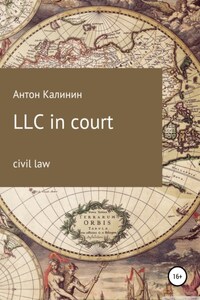I With the development of society, the processes of interaction between people have become more complicated. Knowledge of the laws was highly valued, and jurisprudence was considered a God-pleasing matter. In ancient Rome, for a long time, citizens were forced to represent their interests in court in person. After a while, exceptions were introduced due to gender, age, etc . The history of the domestic institute of law went through 4 stages of formation before the modern system was formed: 1) the bar in the period before 1864; 2) from the moment of Judicial reform until 1917; 3) from 1917 to 1991; 4) and, finally, the modern industry.
And only the regulation of 1832 regulated the activities of representatives in commercial courts to some extent. The “historical breakthrough” in this direction was the act “Establishment of judicial institutions”, which was approved by Alexander II. However, sworn attorneys were forbidden: 1) to act in court against relatives; 2) represent the interests of both parties simultaneously; 3) disclose information received from the principal.
By the declaration of the provisional Government of 03.03.1917, women were allowed to participate in court disputes. According to the decree of the Council of People's Commissars “On the Court” on 11/24/1917, the institute of court attorneys was excluded. In the 1960s, the codification of substantive and procedural civil law took place. On October 24, 1993, the Constitution of the Russian Federation was adopted, the model of which is still used in modern Russia.
Representation of corporate entities in court is an integral element of the successful resolution of the case in favor of the company. It is worth noting that the representation of corporate entities can occur not only in the Arbitration Court, but, for example, in the world. I will give an example from personal experience. While practicing at the Moscow Magistrate's Court, I happened to observe an interesting case: two representatives of large companies presented arguments in defense of their clients. On the one hand there was an LLC, and on the other – an insurance company. The LLC had a claim against the insurance company regarding the refusal to reimburse the insured event. On the part of the LLC, there were arguments that were based on the conditions prescribed in the contract. On the part of the insurance company, there were arguments based on the criteria of the insured event, on which the amount of compensation depended. As a result, since the representatives successfully built arguments without violating the order of behavior in the courtroom, then, as a result, they managed to come to a mutual consensus, during which with.
In the Arbitration Court, the subject is economic disputes. For example, in 2014, Start-Invest LLC was declared bankrupt and recognized as a pyramid scheme. The defrauded depositors appealed to the Arbitration Court, among them were not only legal entities, but also individuals. The question arises: did individuals have the right to appeal to such an instance? Of course, since the subject of the claim was the economic relations between the participants. There was an important nuance: there were two founders who could not find the property. The company's property was of negligible value. And it was not possible to impose an arrest on personal property, including an apartment, since the defendants in the case had minor children, as well as real estate was recognized as the only housing. Despite the fact that the victims were included in the first, second and subsequent queues, the outcome of the case was on the side of the legal entity.








